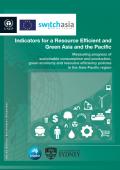
Renewable energy has been considered as the solution to the hydra-headed problems of energy security, energy access and climate change, especially in Africa. In addition, renewable energy sources, such as the sun, wind, wave and waste abound in Africa are in need of investment. In order to provide both policy and investment guidance, this study investigates the drivers of renewable energy demand in oil-producing African countries. Three panel data models – a random effect model, a fixed effects model and a dynamic panel data model – are used to estimate renewable energy demand with a comprehensive set of determinants. The estimation results indicate that the main drivers of renewable energy in oil-producing African countries are real income per capita, energy resource depletion per capita, carbon emissions per capita and energy prices. The study recommends that policies should encourage the consumption of commercial sources of renewable energy to attract the needed investments.

Natural resources are the foundation of economic development. This report reveals the patterns and the evolution of natural resource use with 118 indicators in 26 countries of the Asia and the Pacific region over the last 40 years. The analysis shows that resource use in the region is both inefficient and unsustainable. The Asia-Pacific region will not be able to base its future economic growth on declining costs of natural resources as was possible during most of the twentieth century. An increasing reliance on resources from abroad and volatility in the global resource markets will pose challenges to the economic resilience of countries in the region. In this new economic context resource efficiency and decoupling of economic growth and resource use will be fundamental to the economic success of the region. The knowledge generated by this report helps to improve the understanding of the natural resource use and emissions consequences of economic growth in Asia and the Pacific to support policy formulation, monitoring and policy evaluation in the countries of the region.
As the financial and environmental costs of resource depletion and negative ecological impacts begin to affect economic growth, countries around the world need to find ways to manage finite resources while meeting the needs of a growing and increasingly urban world population. By integrating sustainable consumption and production (SCP) patterns into national development planning and implementation, policymakers can make it easier and cheaper to produce goods and services more efficiently, with lower risks to humankind and the environment.
The handbook contains a rich compilation of SCP definitions, case studies from all over the world, policy instruments, policy implementation processes, monitoring and evaluation methodologies and indicators. It also contains compelling data on both the impact of unsustainable consumption and production, and the efficiency gains to be made by mainstreaming SCP patterns.
For the International Labour Organization (ILO), gender equality has been the core value of its work since its founding in 1919. The pursuit for gender equality is grounded on its recognition that equality is not just an intrinsic value and a right in itself, but also instrumental in achieving economic growth and poverty reduction. This policy brief aims to contribute to the discussion on how gender equality can become an integral part of green economy strategies and how equal access for women and men to green jobs which are decent can be enhanced. The policy brief is targeted at policy makers, social partners and experts in the field working on green jobs/green economy issues.
The first step to resource efficiency is understanding current use. Natural resource use can be rather difficult to visualize. In this video, Patchari Raksawong helps explain just how resource use in the Asia-Pacific looks with the help of custom animations and live footage filmed for the region. Explore the use...
This study attempts to contribute to the growing research on green supply chain management (GSCM) strategies by relying on the Natural Resource Based View (NRBV) and relational view. Specifically, this study investigates the role of collaborative capability in moderating the effects of GSCM practices on firm performance. Using hierarchical regression, this study analyzes data from a survey of 230 South Korean manufacturers. The results show that the implementation of GSCM practices can improve both environmental and financial performance of the firm. Also, the findings indicate that firms can expect improved financial performance when they seek a synergistic effect by involving their partners in the GSCM implementation process.
China’s economy is undergoing a major structural transformation towards a new development model focused on achieving better quality growth that is more economically and environmentally sustainable, and achieves better social outcomes for the Chinese people. This paper traces the origins and explains the content of this new growth model, and considers its likely implications for the trajectory of China’s greenhouse gas (GHG) emissions. In so doing, this report can contribute to an important policy debate concerning the future direction of China’s economy and its role in responding to global climate change.
The Green Economy Toolkit for Policymakers produced under PAGE provides countries with practical guidance on how to formulate and assess policies, measure progress and model future effects of the transition. The toolkit consists of three reports, where the guidance manual for green economy policy assessment advises governments on how to set targets, identify policy reform needs, estimate the amount of investment and assess policy impacts.
This manual provides a customized guidance on how to conduct a target-driven Green Economy Policy Assessment (GEPA) in order for policymakers to develop and adopt green economy policies to achieve their sustainable development targets. It is aimed at all those who are involved in managing, designing or implementing projects in the name of green economy (or green growth, green development, low-carbon development and the like).
